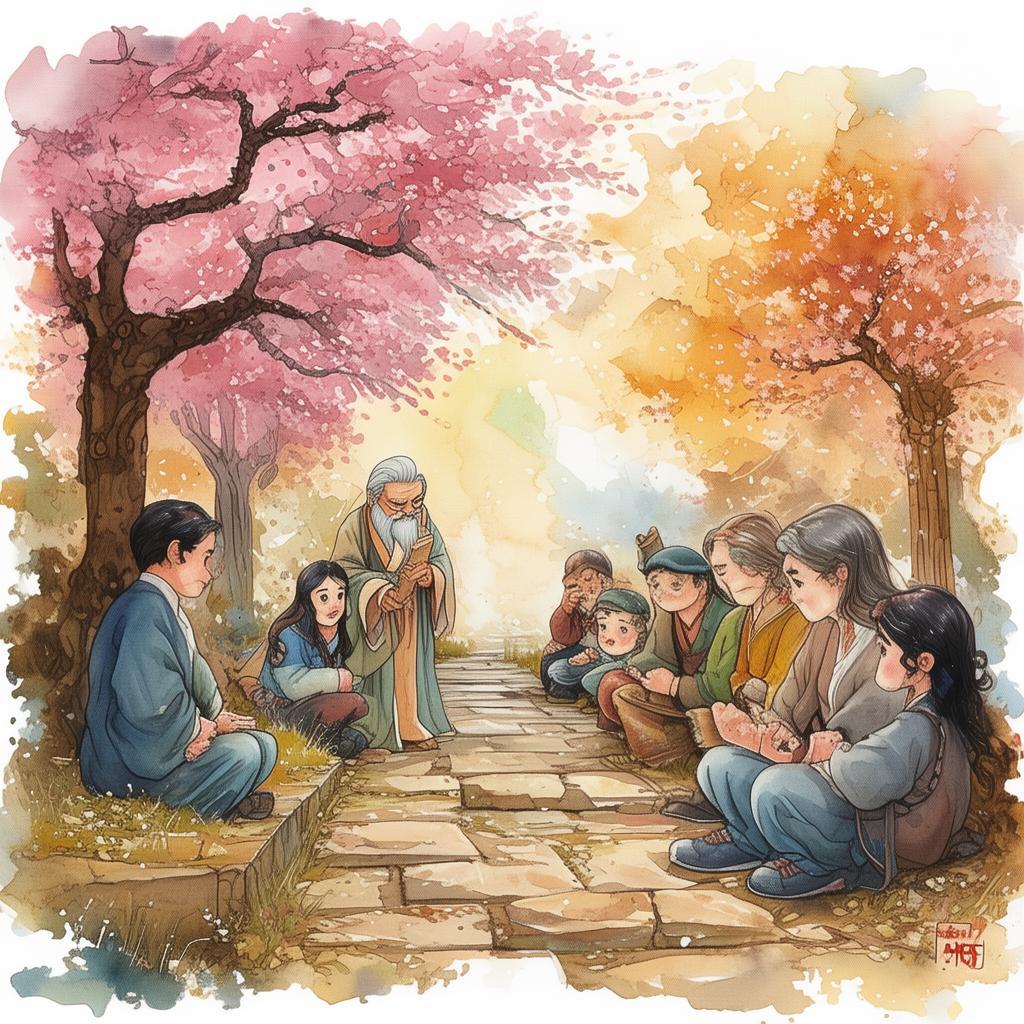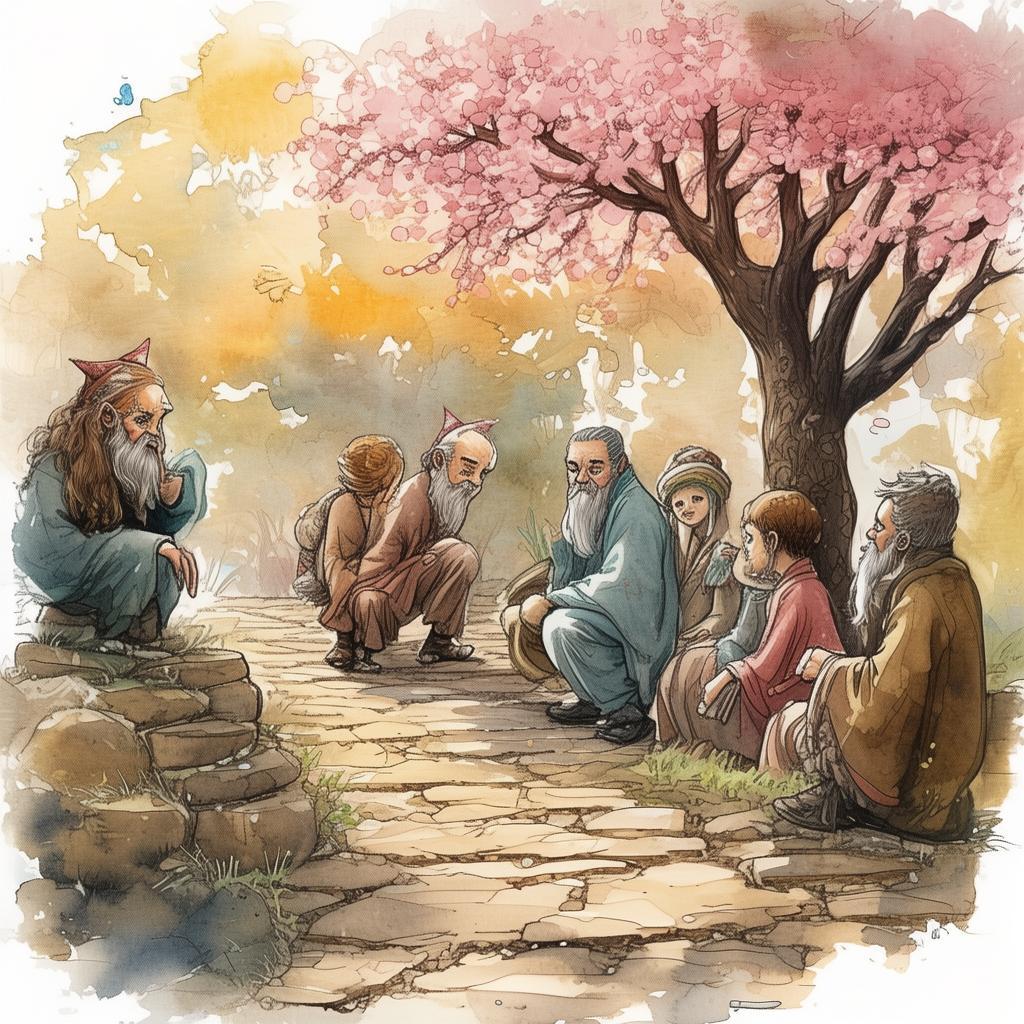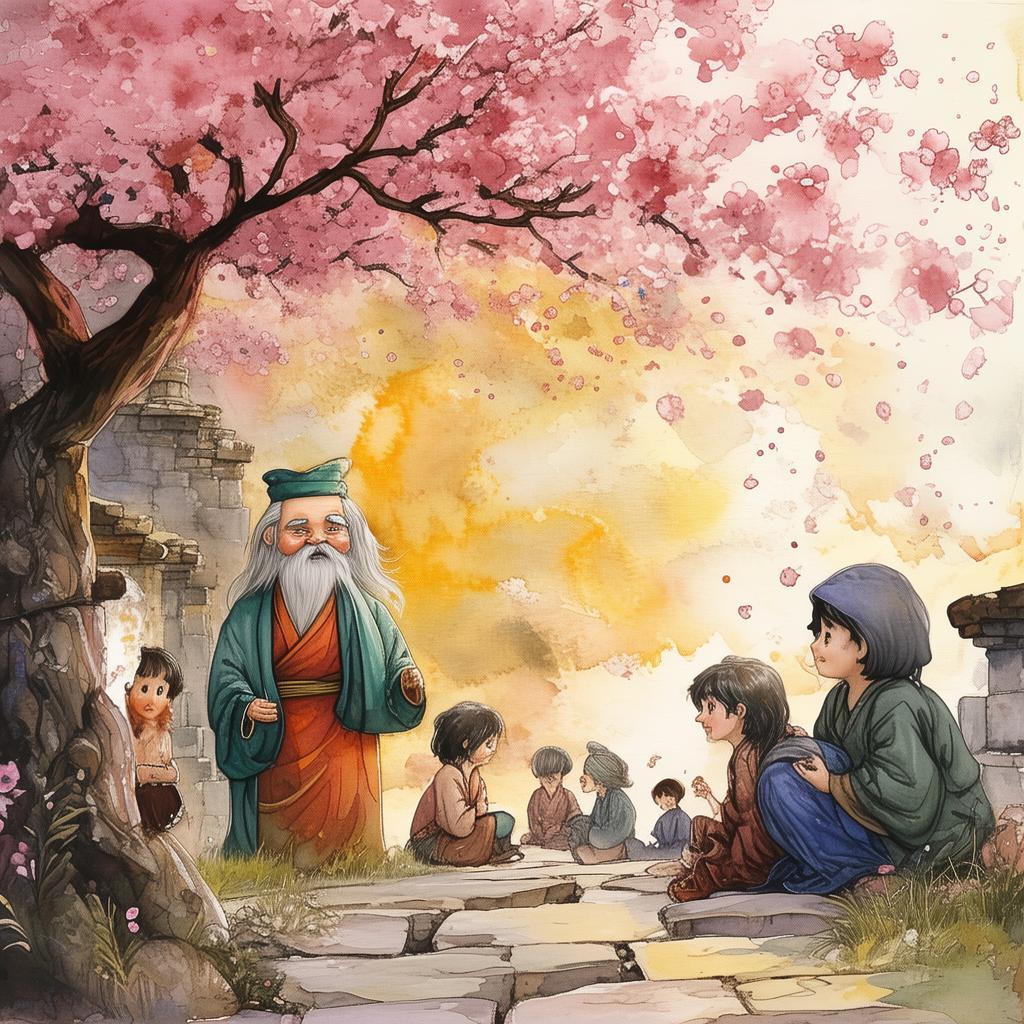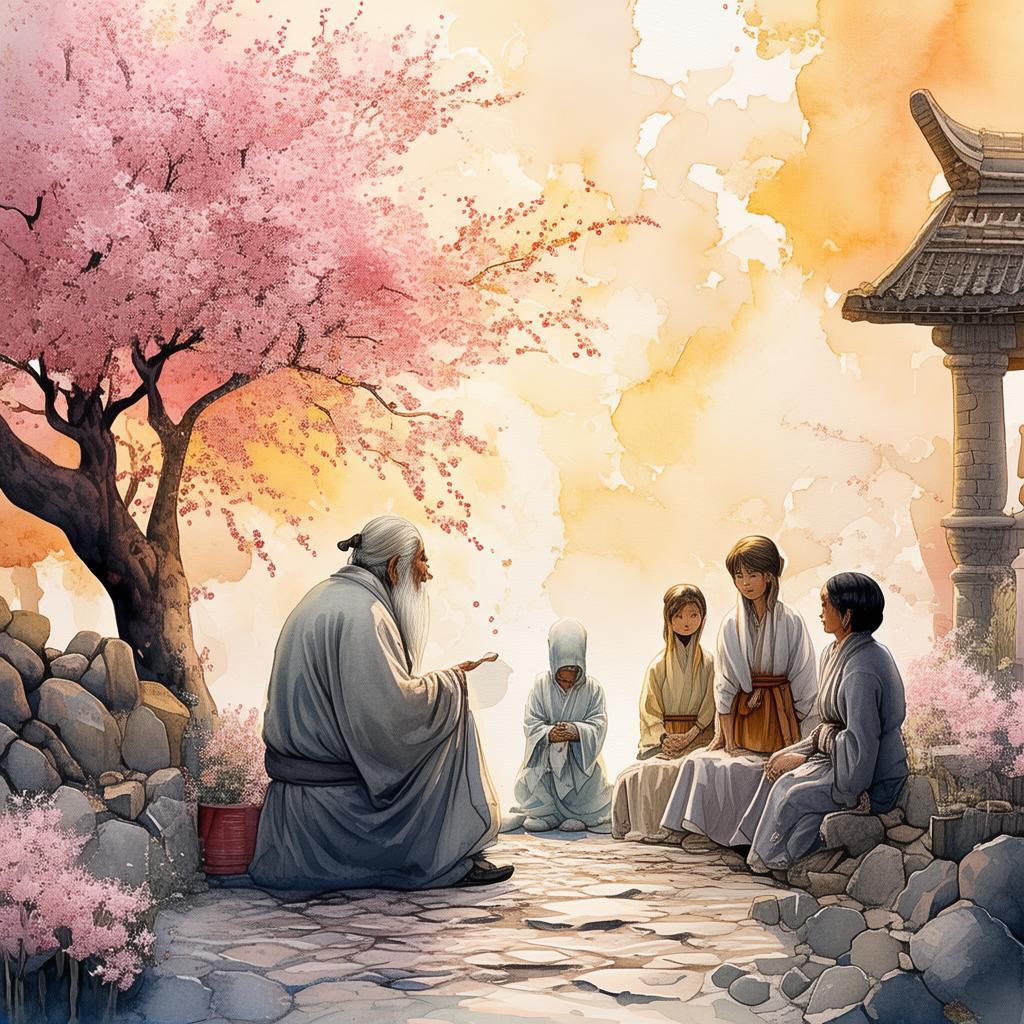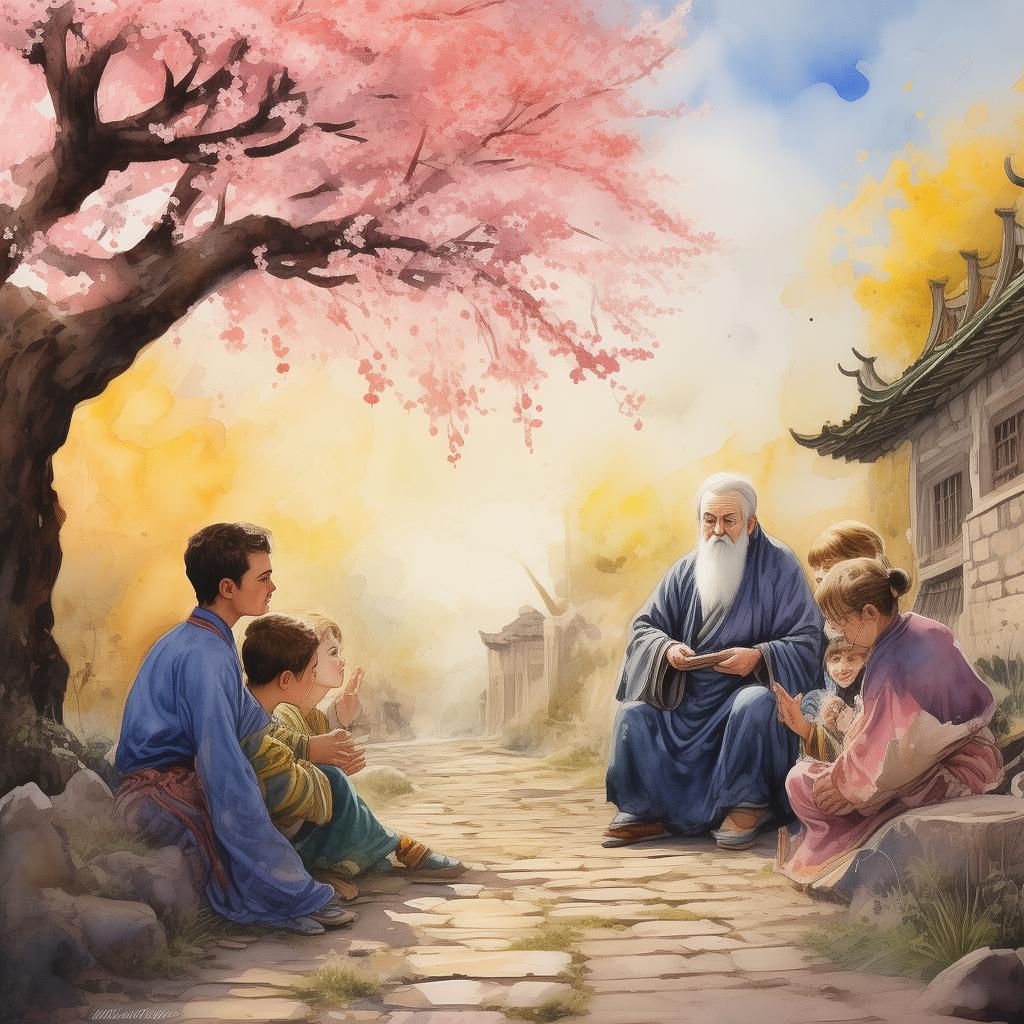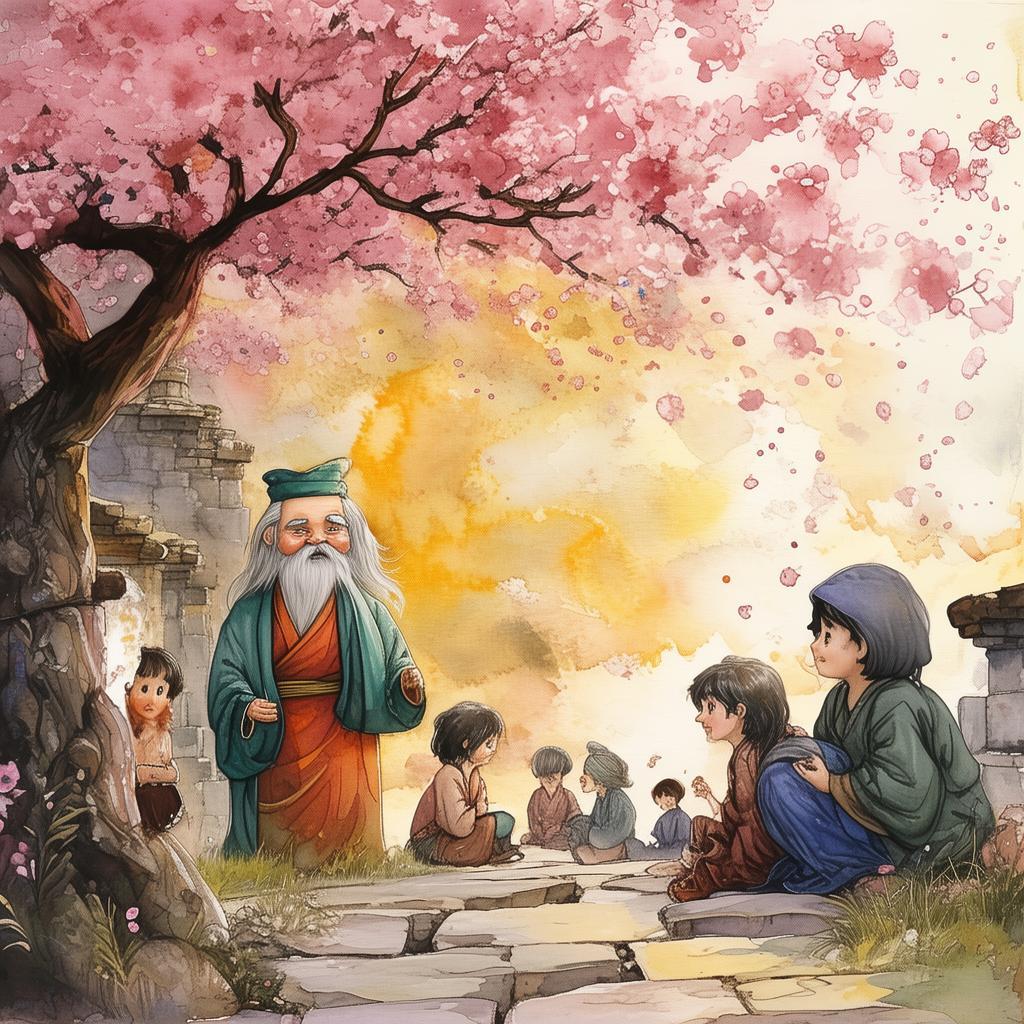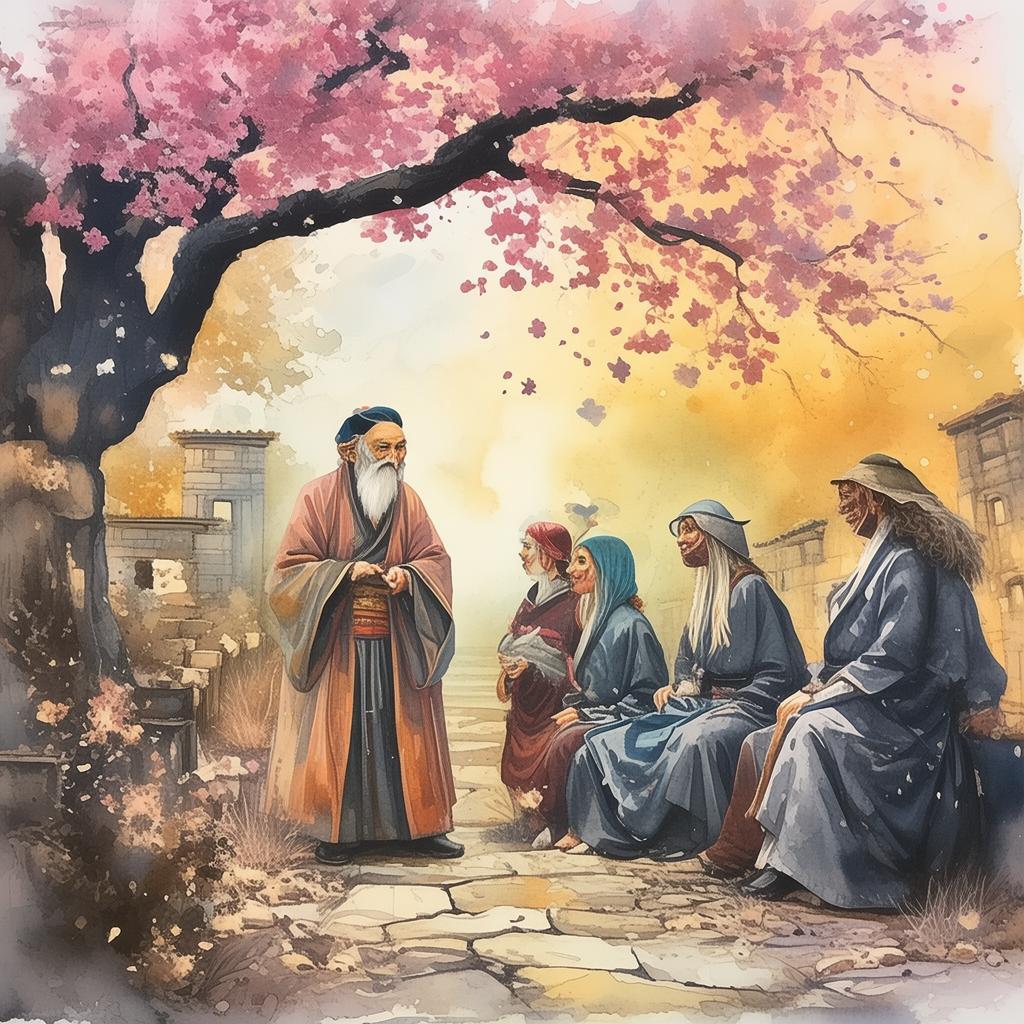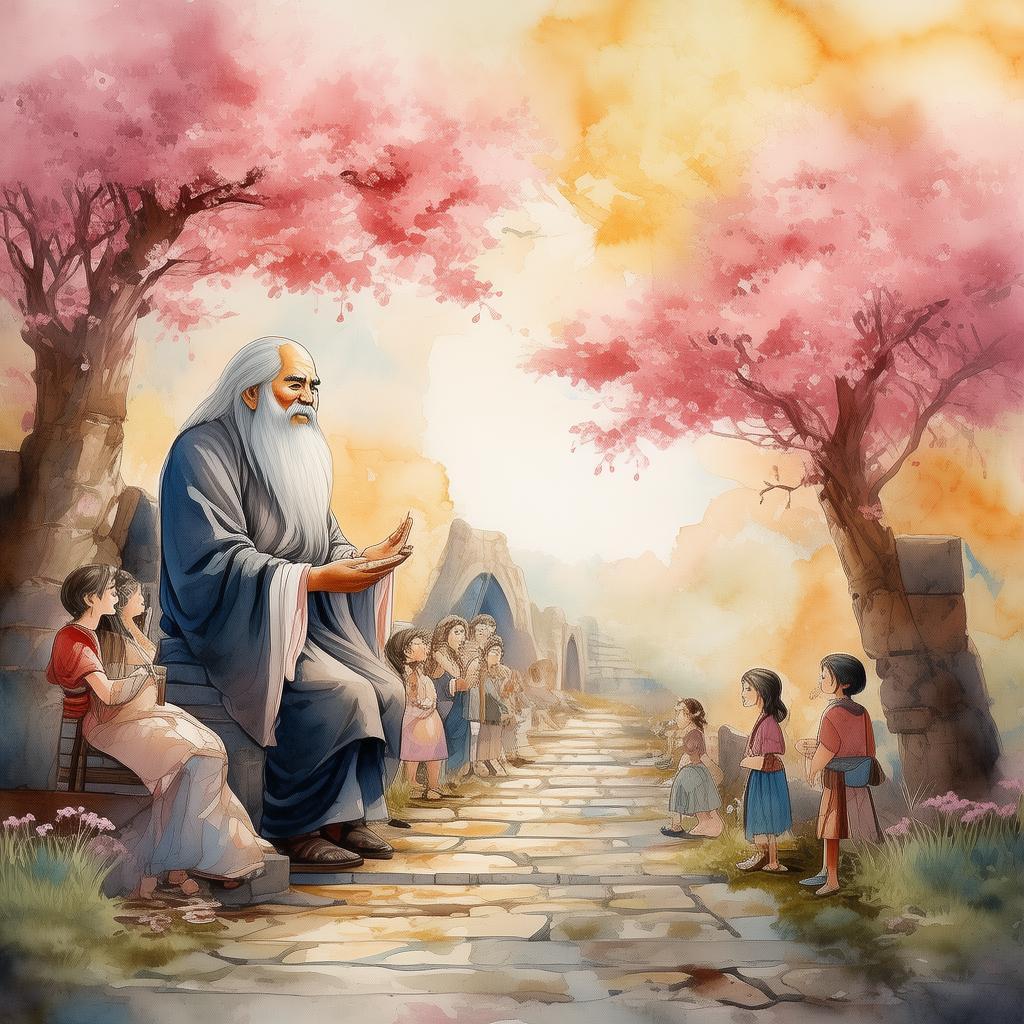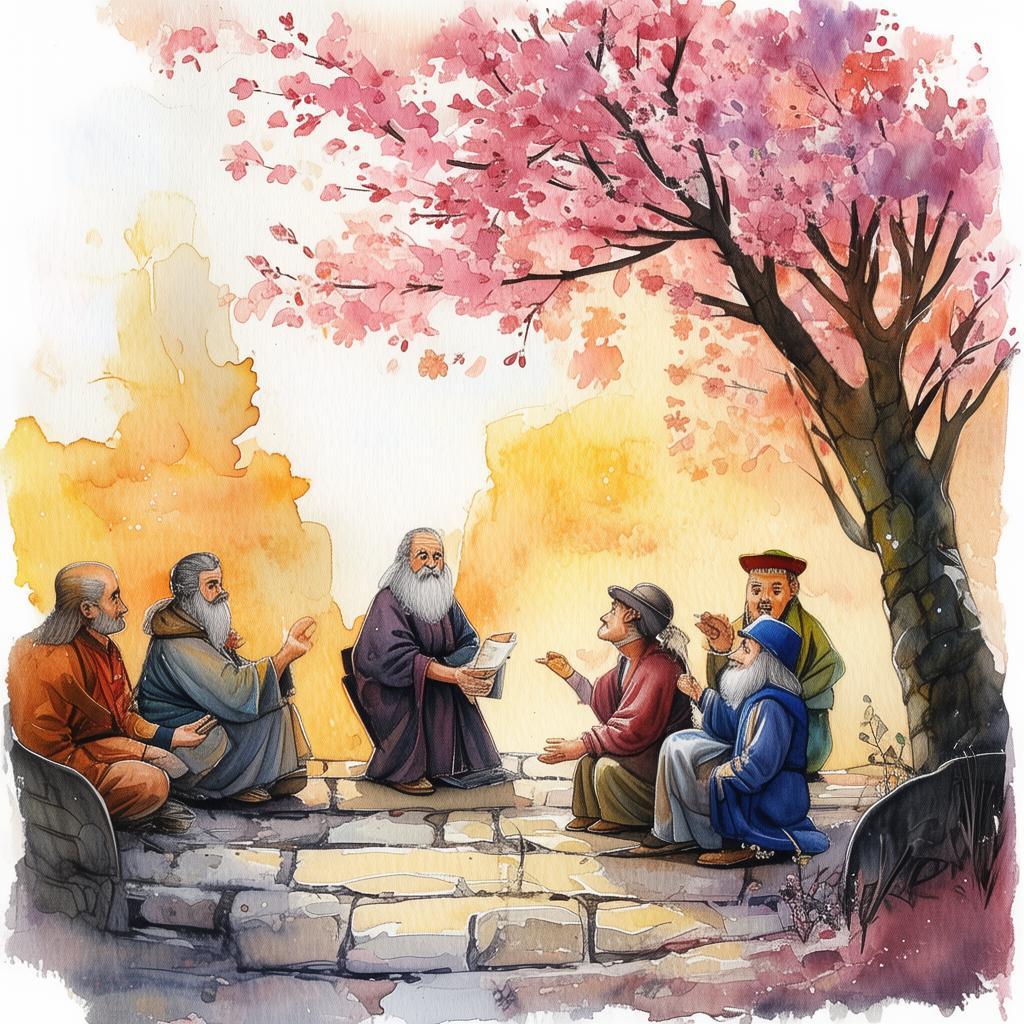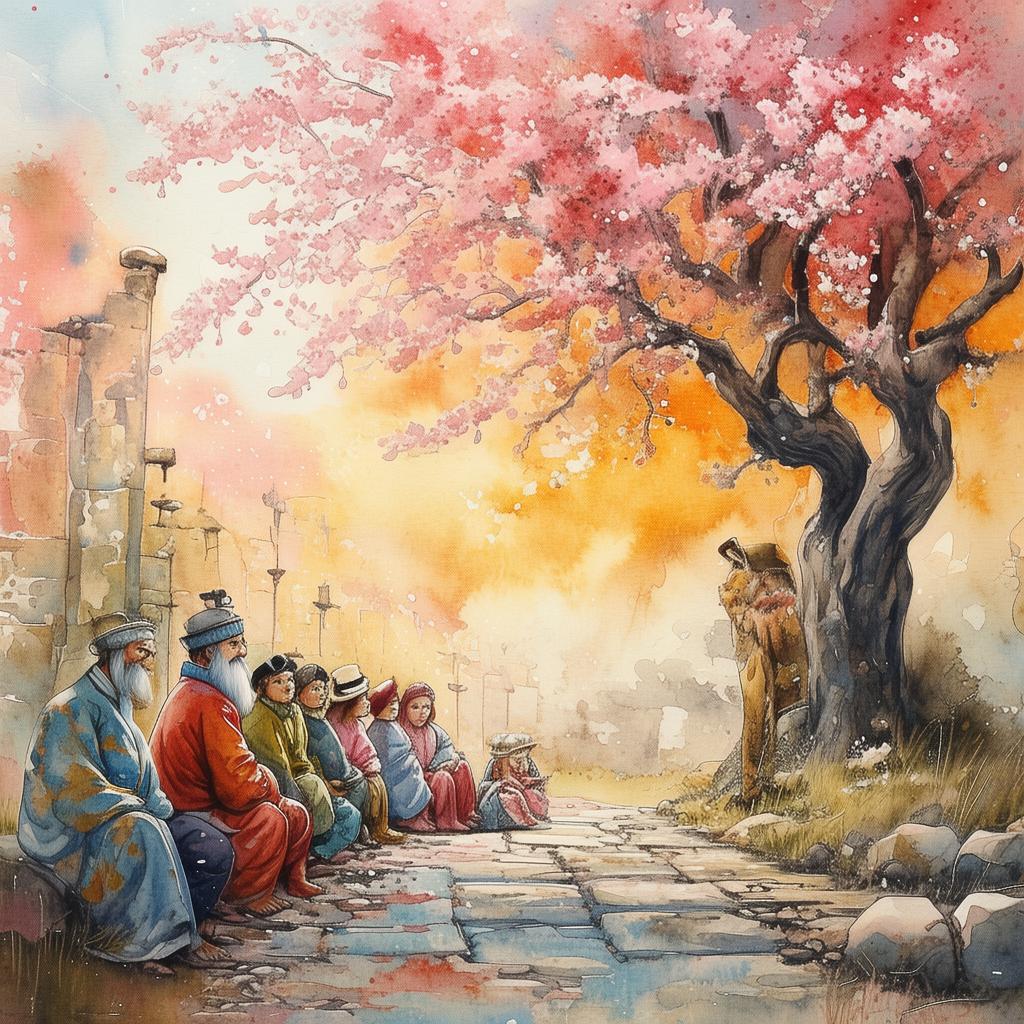Confucian's Dilemma: The Heart of Disharmony
In the heart of the ancient Chinese empire, there lived a scholar named Ming, whose mind was as sharp as a rapier and whose heart was as loyal as the ink that stained his scrolls. Ming was renowned for his knowledge of the classics, his unwavering adherence to the teachings of Confucius, and his dedication to the empire's prosperity. However, the empire was not as it seemed.
The emperor, a man of cunning and ruthless ambition, had been amassing power at the expense of his people. He sought to silence anyone who dared to challenge his rule, and Ming, with his moral compass unyielding, found himself in the crosshairs of the emperor's wrath.
One fateful night, Ming received a letter. It was a riddle, a puzzle wrapped in the language of ancient wisdom, and it contained a dire warning. The letter spoke of a conspiracy to overthrow the emperor, and Ming was the key to its unraveling. The writer of the letter was a fellow scholar, a man who had once been a friend, but whose name was now whispered with fear and suspicion.
Ming knew he had to act, but the dilemma was clear. If he revealed the conspiracy, he would be hailed as a hero, but he would also risk the lives of those he loved, and the empire would never be the same. If he kept silent, he would be betraying his own principles and the people who needed him most.
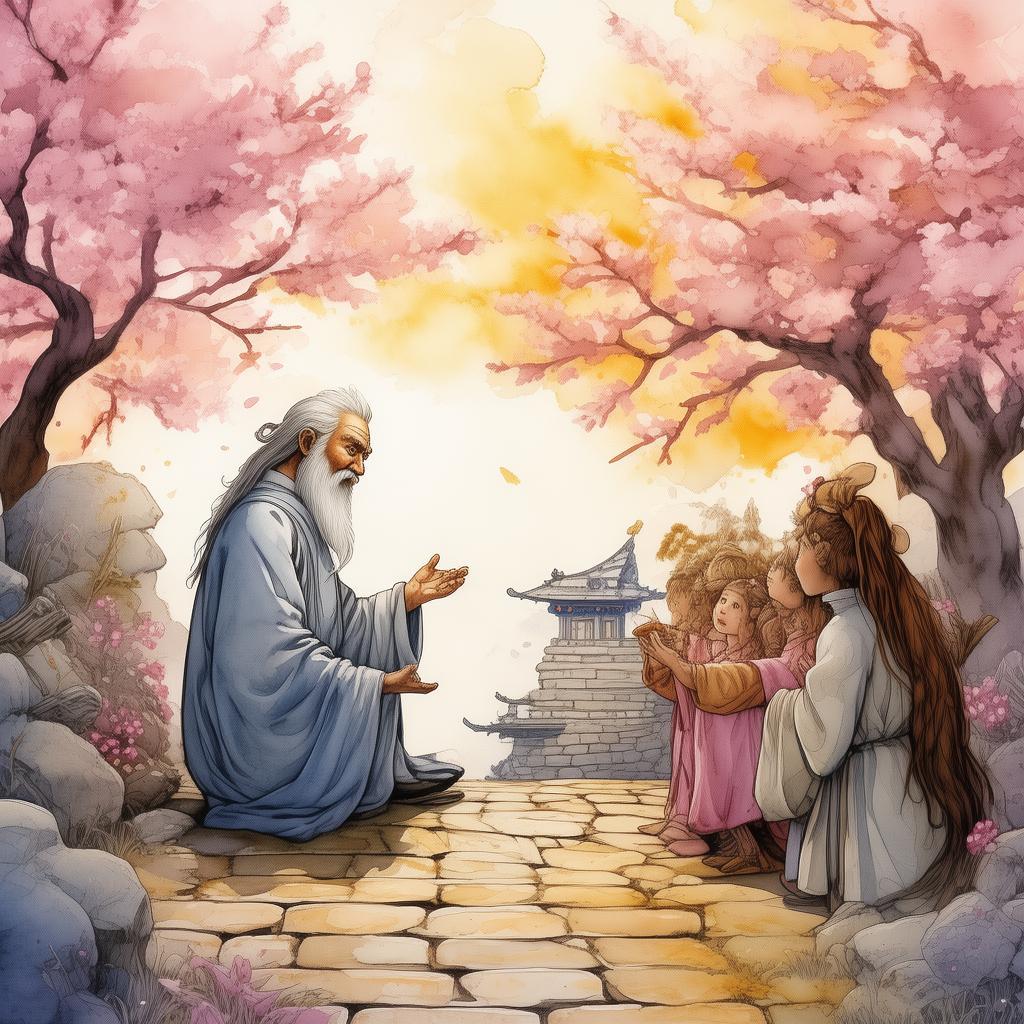
The story unfolded with Ming's internal struggle. He visited the writer of the letter, a reclusive figure named Hua, who had been exiled to the outskirts of the empire. Hua, a man of great intellect and a heart heavy with regret, revealed that he had once been part of the conspiracy, but had since turned his back on it, driven by a sense of guilt and a desire to make amends.
Ming was torn. On one hand, he saw Hua as a man who had made a mistake and was now trying to atone for it. On the other hand, he feared the consequences of revealing such a conspiracy, even if it meant the end of the empire's corrupt rule.
As Ming grappled with his decision, the emperor's spies closed in. Ming was forced to flee, his life in constant danger as he sought to find allies who could help him expose the conspiracy. He turned to his students, a group of young scholars who had been taught to question authority and seek truth.
The plot thickened as Ming discovered that the conspiracy was not as simple as he had thought. There were hidden layers, and the true mastermind was closer to him than he ever imagined. Ming's journey became one of self-discovery, as he realized that the greatest threat to the empire was not the conspiracy, but the moral decay that had taken root in the hearts of its rulers.
In a climactic turn of events, Ming confronted the emperor in a secret meeting. The emperor, a man who had been so consumed by power that he had forgotten the essence of his own humanity, was unprepared for Ming's moral resolve. Ming's words cut through the emperor's lies, and the truth of the conspiracy was revealed to the empire's citizens.
The empire was thrown into chaos, but Ming, with his unwavering sense of duty, helped to restore order. He became a symbol of hope for the people, a man who had chosen to stand up against tyranny, even at the cost of his own life.
The story of Ming and Hua, and the empire they had once served, was one of moral triumph and the enduring power of truth. It was a tale that would be told for generations, a testament to the strength of the human spirit in the face of darkness.
In the end, Ming's journey taught him that loyalty to one's principles is more important than loyalty to a corrupt regime. The empire may have been saved, but Ming's heart was forever changed, and he carried the weight of his decisions with him for the rest of his days.
As the dust settled and the empire began to heal, Ming found solace in the knowledge that he had done what he believed to be right. And so, the tale of the Confucian Scholar's Dilemma: The Heart of Disharmony, became a legend, a story that would resonate through the ages, reminding all that the true power of a nation lies not in its ruler, but in the hearts of its people.
✨ Original Statement ✨
All articles published on this website (including but not limited to text, images, videos, and other content) are original or authorized for reposting and are protected by relevant laws. Without the explicit written permission of this website, no individual or organization may copy, modify, repost, or use the content for commercial purposes.
If you need to quote or cooperate, please contact this site for authorization. We reserve the right to pursue legal responsibility for any unauthorized use.
Hereby declared.
